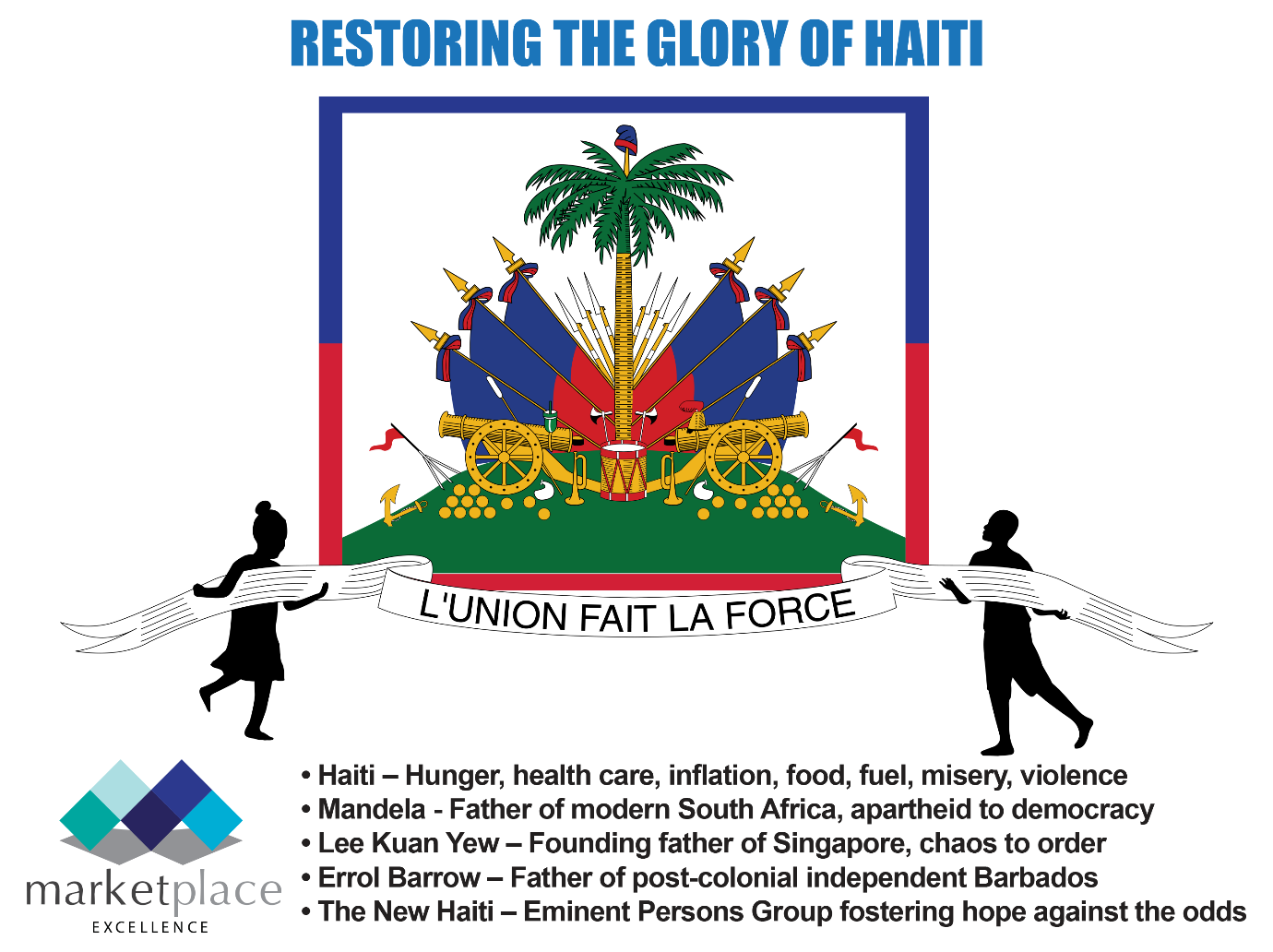“Moreover, Abraham became the father of generations who live by faith, those who hope against the odds.” – Romans 4:19
I reported in this column on January 16, 2023, that my morning “winter” walk buddies around the Club Rockley are primarily Bowen Wells, a former British MP and a former consultant to the Commonwealth Development Corporation, and Canadian Dr. Tom Sears, a former international banking executive. Both, together with their wives, have been regular visitors to Barbados during the winter for many years.
Sincerest condolences to Bowen who has recently and relatively suddenly lost his wife, Rennie, and has returned to England. On my current visit to Barbados for Easter I overlapped with Tom and his wife, Jessica for one day before they returned to Canada.
e to have lunch with Tom and have one last morning walk for the season. Our topic, at the behest of Bowen, was Haiti.
Haiti is a country that has been plagued by political turmoil, natural disasters, and economic challenges including hunger, poor health care, inflation, food, fuel, misery and violence for decades. As political scientists and international aid organizations look for solutions to help Haiti turn its fortunes around, valuable lessons can be gleaned from the leadership of Nelson Mandela in South Africa, Lee Kuan Yew in Singapore, and Errol Barrow in Barbados.
One of the key principles that can be learned from Nelson Mandela’s leadership is the importance of reconciliation. Mandela worked tirelessly to bring together different groups in South Africa, promoting forgiveness, and encouraging people to work together towards a common goal. This approach could be applied in Haiti to help heal the deep divisions that exist within the country and promote unity.
Another lesson to be learned from Mandela is the need for strong leadership that is backed by a broad-based coalition of supporters. Mandela was able to build a coalition that, stimulated by the Commonwealth Eminent Persons Group, included a wide range of groups, from labor unions to business leaders, and he used this support to push for democratic reforms and economic growth.
Lee Kuan Yew’s leadership in Singapore offers solid lessons on the importance of good governance and a focus on economic development. Under Lee’s leadership, Singapore was transformed from a sleepy fishing village, with a threat of communism, into a prosperous and developed country. Lee emphasized the need for good governance, including a strong legal system, effective bureaucracy, and a focus on meritocracy. While facing complex challenges, these principles could be applied in Haiti to improve governance and promote economic development.
The leadership of Errol Barrow in Barbados demonstrates the importance of self-determination and independence. Barrow fought for social and political reform and led Barbados to independence from British rule in 1966. This example shows that a commitment to independence and self-determination can help to build a strong and resilient nation.
To turn Haiti around, a comprehensive model that incorporates the principles of coalition-building, a commitment to independence, and self-determination is required.
In addition, it will be important to address the root causes of Haiti’s challenges, including poverty, inequality, and corruption. This will require a sustained effort by government leaders, civil society organizations, and yes, CARICOM and the international community, to work together to promote sustainable economic growth, improve education and health care, and promote social justice.
As calypsonian David Rudder offers: “Haiti, I am sorry. One day we’ll turn our heads and restore your glory.”
Ultimately, turning Haiti around will require a long-term commitment and sustained effort by all stakeholders. By learning from its glorious past (the first in the Caribbean to achieve independence through a successful slave rebellion) as well as the leadership of Nelson Mandela, Lee Kuan Yew, and Errol Barrow, Haiti can begin to develop a comprehensive model that will help to transform the country and promote sustainable growth and development for all its citizens.
A global Eminent Persons Group to Haiti could be a critical first step.

(Dr. Basil Springer GCM is a Change-Engine Consultant. His email address is basilgf@marketplaceexcellence.com. His columns may be found at www.nothingbeatsbusiness.com)
